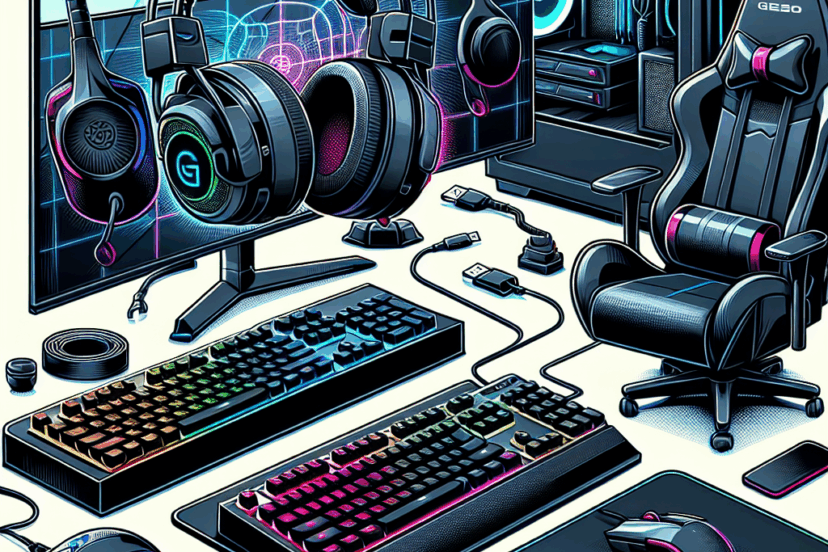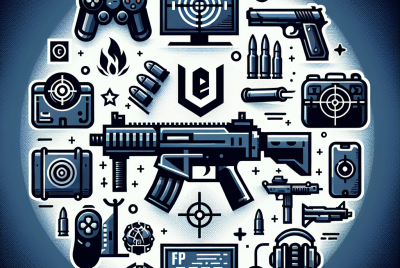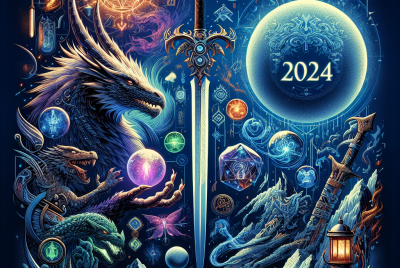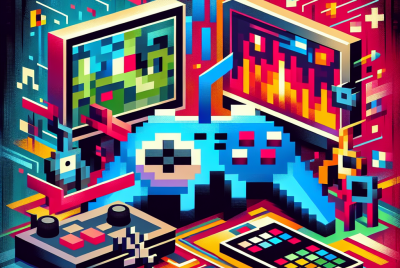Sonic Symphonies: Celebrating Video Game Music Legends
The Evolution of Video Game Music
From Simple Chiptunes to Orchestral Masterpieces
In the early days of gaming, music was a simple affair. Limited by hardware capabilities, composers had to rely on a handful of sound channels to create memorable tunes. These early soundtracks, often referred to as chiptunes, featured catchy melodies and simple rhythms that still resonate with many gamers today. Think of the iconic sounds of the original Nintendo Entertainment System; tunes from classics like Super Mario Bros. and The Legend of Zelda were crafted using limited data but managed to evoke powerful emotions.
As technology advanced, so did the composition of video game music. By the time we reached the 16-bit era with consoles like the Super Nintendo and Sega Genesis, composers had a wider palette to explore. With richer soundfonts, tracks began to evolve into more complex arrangements, often drawing from various music genres. It was during this time that we first saw soundtracks becoming an integral part of the gaming experience, helping to enhance gameplay and storytelling.
The Rise of Iconic Composers
With the technology enabling more sophisticated compositions, certain individuals rose to prominence as legendary video game composers. Their contributions have become hallmarks within gaming culture.
Nobuo Uematsu: The Maestro Behind Final Fantasy
Nobuo Uematsu is undeniably one of the most celebrated figures in video game music. His work on the Final Fantasy series has left an indelible mark on gamers worldwide. Each title in the franchise flaunts a unique musical identity, with Uematsu’s compositions ranging from emotionally charged orchestral pieces to upbeat battle themes.
Tracks like “One-Winged Angel,” from Final Fantasy VII, showcase his ability to blend complex orchestrations with choral elements, elevating the emotional stakes of the narrative. Uematsu demonstrated that video game music could be a form of artistic expression, capable of standing alongside traditional symphonic works.
Another titan in the realm of video game music is Yoko Shimomura. With a diverse body of work that includes iconic pieces from Street Fighter II and Kingdom Hearts, Shimomura has proven herself as a talented composer who understands how to capture the essence of gameplay.
Her melodies are often melodic and introspective, striking a balance between whimsical and dramatic. The pieces from Kingdom Hearts, in particular, evoke powerful emotions, effectively portraying the complexities of the game's story. Tracks like “Dearly Beloved†have become anthems for fans, exemplifying how video game music can transcend the medium and touch listeners on a personal level.
Koji Kondo: The Sound of Nintendo
You cannot talk about video game music without mentioning Koji Kondo, the composer behind many of Nintendo’s most beloved franchises. Kondo’s work includes the musical foundations of Super Mario, The Legend of Zelda, and many others. His ability to craft catchy, memorable tunes has helped shape gaming memories for countless players.
Kondo’s contributions go beyond mere melodies. He understood the significance of music in gameplay mechanics, like the iconic underground theme of Super Mario Bros. that signaled a change in pace and atmosphere. His work remains influential, proving that simple yet effective music can create a lasting impact.
The Role of Technology in Video Game Soundtracks
Advancements in Audio Technology
Over the years, the technological revolution has had a significant impact on how video game music is composed and experienced. The transition from 8-bit and 16-bit soundtracks to full orchestral scores has opened up new possibilities for composers. Today’s tools allow musicians to create realistic sounds, utilizing digital audio workstations that can simulate live instruments.
Live Orchestral Performances
An exciting trend in game music is the rise of live performances. Symphonic concerts dedicated to video game music have gained massive popularity, allowing fans to experience their favorite tracks performed by live orchestras. Events like the “Distant Worlds: Music from FINAL FANTASY” concert series and “The Legend of Zelda: Symphony of the Goddesses” showcase how video game music can be appreciated as high art, all while celebrating the gaming culture.
Interactive Music in Gaming
Moreover, modern technology has also introduced the concept of interactive music, where the soundtrack evolves in response to player actions. This dynamic approach adds another layer to the gaming experience, allowing for an even deeper emotional connection with the game. The game “Journey,” with its seamless integration of music and gameplay, is an excellent example of how composers are pushing boundaries to create immersive sound experiences.
The Collaborative Nature of Video Game Soundtracks
Teamwork in Composition
Creating a memorable video game soundtrack often requires collaboration among various departments, including sound design, art, and narrative. Composers work closely with game directors and sound designers to ensure that the music complements the visuals and gameplay mechanics. This synergy is crucial for achieving a cohesive experience.
Guest Composers and Multi-Composer Projects
In recent years, multi-composer projects and guest composers have become more common, allowing for diverse musical styles within a single game. For example, in the platformer “Celeste,” each chapter features a different musical theme that contributes to the narrative while still maintaining an overall sound that binds the experience together. This approach allows for innovation and fresh ideas, as each composer brings their unique voice to the project.
Notable Soundtracks and Their Impact
Journey: A Symphony of Emotion
A standout title in the world of video game music is “Journey,” composed by Austin Wintory. The soundtrack is intricately woven into the fabric of gameplay, responding to players' actions and adding emotional weight to the overall experience. Wintory's powerful use of string instruments creates an ethereal sound that perfectly encapsulates the game’s themes of exploration and companionship.
The score has even received critical acclaim outside the gaming community, being nominated for awards such as the Grammy. It showcases the transformative power of video game music and how it can resonate with audiences on a broader scale.
Undertale: Retro Vibes and Modern Impact
Another noteworthy example is Toby Fox’s “Undertale,” which has become a cult classic not only for its gameplay but for its memorable soundtrack. The music combines retro-influenced chiptunes with emotional melodies, effectively reflecting the game’s quirky tone and touching story.
Tracks like “Megalovania” have reached meme status, taking the gaming world by storm and highlighting how video game music can permeate popular culture. The success and widespread appreciation of Undertale’s soundtrack demonstrate the lasting influence that video games can have on music and art.
The Future of Video Game Music
Emerging Talents and New Styles
As the gaming industry continues to grow, so does the pool of emerging talents. New composers are stepping into the spotlight, each with their unique perspectives and styles. The expansion of indie games has provided platforms for fresh voices, and we are beginning to see a wider variety of musical innovation.
This diversification paves the way for genres that blend traditional and modern influences, incorporating elements from film soundtracks, world music, jazz, and beyond. The impact of this evolution is evident in recent titles like “Hades,” where the music is not only beautifully composed but intricately tied to the game's themes and narrative.
Music Streaming and Gaming
With the rise of gaming as a form of entertainment, music streaming platforms are increasingly showcasing video game soundtracks. Services like Spotify and Apple Music now feature curated playlists of video game scores, making it easier for fans to dive deeper into the music they love. This accessibility allows composers to reach wider audiences and gain recognition beyond the gaming community.
A Recognized Art Form
As the appreciation for video game music grows, so too does the acknowledgment of composers as artists in their own right. Awards and accolades in the industry are beginning to reflect this shift, with events such as The Game Awards recognizing outstanding musical achievements alongside more traditional categories.
The evolving landscape of video game music illustrates that it is not merely background noise but a vital part of the gaming narrative. It has the potential to stand alongside classical and contemporary music, reshaping perceptions of what constitutes great art in our time.
Community and Cultural Impact
Fostering Community Through Music
Video game music has a unique ability to foster community among players. Gamers often gather to share their favorite soundtracks, discuss their emotional impact, and celebrate their favorite composers. The creation of fan covers and remixes is a testament to the music's lasting influence, as fans reinterpret beloved themes through their own lenses.
Cultural Events Dedicated to Video Game Music
Cultural events dedicated entirely to video game music have also become more prevalent. Festivals and conventions often feature panels, performances, and discussions about the role of music in gaming. These events provide an opportunity for fans to connect, share experiences, and engage with the artists behind the music.
Overall, the celebration of video game music has enriched the gaming community, binding players together through shared joy and nostalgia.
Conclusion
The journey of video game music is one marked by innovation, artistic expression, and cultural significance. The talents of composers like Nobuo Uematsu, Yoko Shimomura, and Koji Kondo have paved the way for future generations, with modern technology and evolving perspectives on music serving to propel this unique art form forward. As we look ahead, the soundtrack of the gaming experience will undoubtedly continue to evolve, remaining a vibrant and essential part of the world of entertainment.




